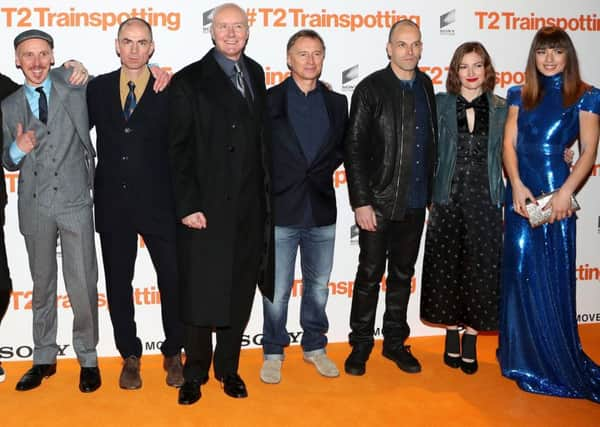Brian Ferguson: Scottish screen industry needs more than buzz words


On the face of it, there was much to be positive about for Scotland’s film and television industries as 2017 drew to a close. It is hard to imagine a better Christmas present than the news that the Scottish Government had given its final approval for the nation’s first purpose-built studio.
Months earlier ministers had announced a deal to double the government’s support for the “screen sector” to £20 million.
Advertisement
Hide AdShortly before that was an announcement that the National Film and Television School was to open a hub in Scotland under a new BBC partnership. It was an obvious and early spin-off from the BBC’s announcement, nearly a year ago, of a new TV channel for Scotland, complete with a budget of more than £30 million and 80 new journalists.
All this was unfolding as the industry was benefiting from recording spending from productions in Scotland, up by nearly a third to £69.4 million in 2016.
Much of this was undoubtedly down to the impact of the lengthy shoot on Trainspotting sequel T2 and the long-running drama series Outlander. But industry experts believe this figure could be surpassed again for 2017 thanks to the impact of high-profile productions like Avengers: Infinity War, which spent seven weeks filming in Edinburgh, and two historical epics, Mary Queen of Scots and Robert the Bruce biopic Outlaw King.
Putting the lid on what appeared to be an exciting new era were plans for the country to get a dedicated screen unit for the first time in eighty years. Key aims were to double the value of the industry in the space of five years as well as provide greater “leadership, co-ordination and accountability,” key demands from industry campaigners in recent years. With the screen unit overseeing the new £20 million budget for the sector announced by the government, there has been understandable anticipation that a significant corner was about to be turned.
I struggled to work up much enthusiasm about the screen sector unit myself, given that it was being set up, and would be located within, Creative Scotland, the quango which has had joint responsibility for film and television since the controversial merger of Creative Scotland and the Scottish Arts Council in 2010. A 60-page blueprint for the screen unit, published in December by Creative Scotland after being rubber-stamped by culture secretary Fiona Hyslop, did not help. It was largely tepid, uninspiring stuff, crammed full of civil service waffle and Creative Scotland’s favourite buzzwords. It largely echoed the umpteen report cards on the industry which have been produced by the quango or the Scottish Parliament in recent years.
It was unclear where the “clear leadership” of these vital industries would be coming from exactly. That is even less clear now, in the wake of the surprise resignation of Natalie Usher, Creative Scotland’s director of screen, who was expected to oversee the new body.
Advertisement
Hide AdIt was not clear when she decided the brave new era for film and television was not for her. It is notable that her role does not merit a single mention in the screen unit blueprint, which was signed off by Creative Scotland’s chief executive, Janet Archer, instead. It insists Ms Usher, who played a key role in drawing up the blueprint, will be replaced, but will answer to a new executive director of the screen unit, a chain of command that was simply not spelled in the blueprint.
It is unlikely that Ms Usher wrote herself out of the future of the screen sector after a monumental effort to get over the finishing line, but whoever did now has quite a bit of explaining to do to these vitally important industries.
